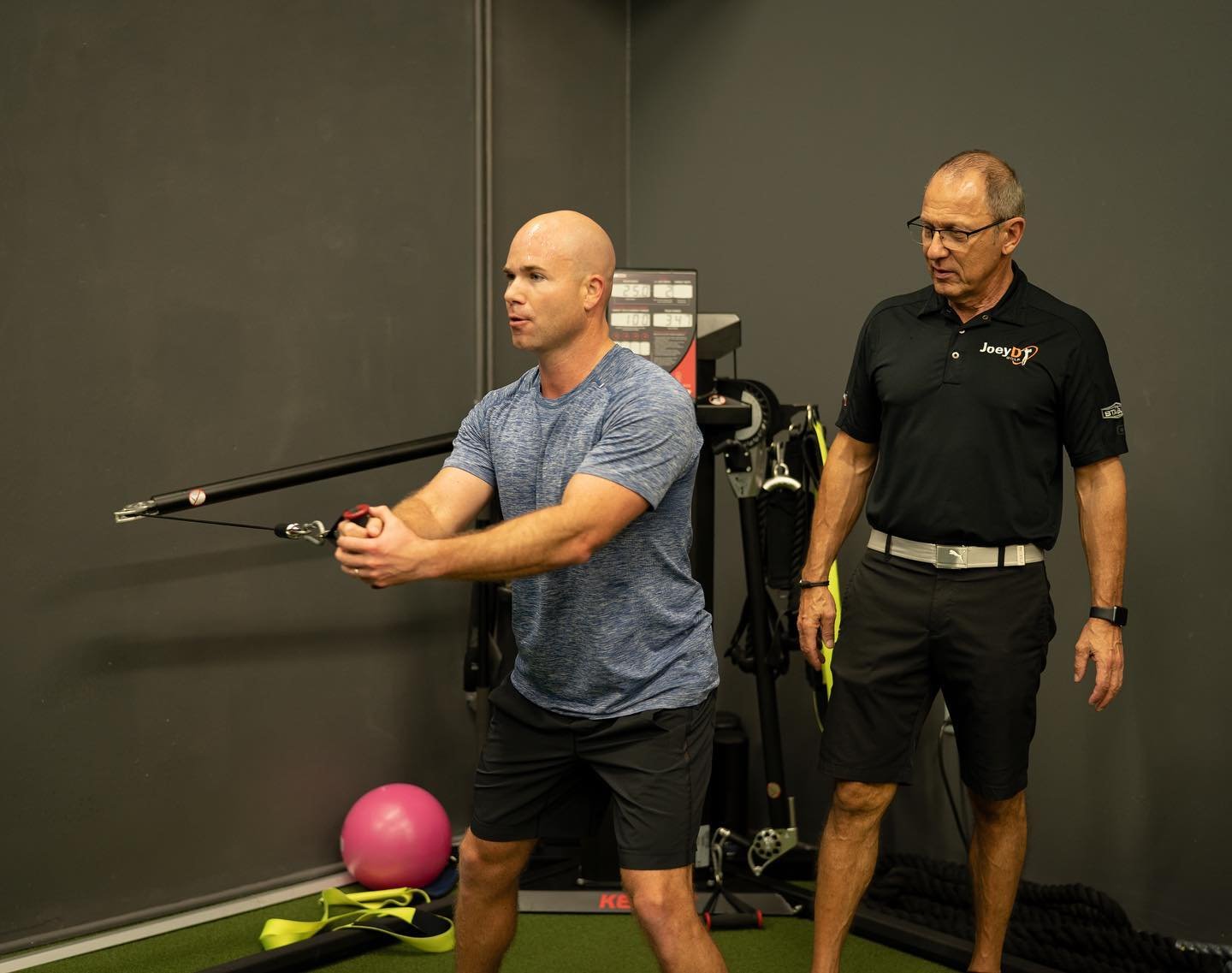
When you go for your annual check-up with your doctor, does he shake your hand, ask how you're doing, and then immediately schedule you for an appendectomy? At your last dental appointment, did your dentist start randomly drilling a bunch of your teeth?
I'm guessing the answer is no. (And if it isn't, please find some new health care professionals.)
Why should it be any different with your golf swing and your golf fitness?
If You're Not Assessing, You're Guessing
I'm generally not a fan of clichés. For the most part, they reflect a lazy and usually dated sentiment or thought process. That said, when it comes to work we do every day at the Joey D Golf Sports Training Center with some of the top players in the world, there's still a whole lot of truth in the old adage: "If you're not assessing, you're guessing."
Sure, you may think you know why you're hitting it thin or why you're always hooking or slicing the ball, but unless you actually look at the way your body moves, you're grasping at straws.
The golf swing is one of the most complex movements in all of sports. It involves movement at just about every joint in the body. Dysfunction at just one of these joints will negatively affect the golf swing and possibly lead to injury.
By properly assessing your own "golf health," you'll easily be able to see where your body is too tight, too weak, or simply out of balance. Once you've identified any physical limitations you might have, you'll then know exactly where and what to focus on in your golf fitness program.
Simply put, to play golf at an optimal level, your body needs to be able to perform golf-specific movements in an optimal way. And the best way to make sure that your body can perform these movements is through a golf fitness assessment. If you can't get sufficient movement at the ankles, hips, shoulders, and around the spine, you will not swing the club as well as you could be swinging it. If you lack the lower body stability and the upper body strength to maintain proper posture and spine angle, you will not be swinging the club as well as you could be swinging it.
Again, if you're not assessing, you're guessing.
So, what should you be assessing?
Assessing Rotation
The golf swing is a rotational movement. Your takeaway and backswing require rotation at the hips, around the spine, and at the shoulders. Your downswing through impact and into your follow-through requires even deeper rotation at all of those joints plus rotation at the ankle and elbow. Any assessment should look into your ability to comfortably, stably, and sufficiently rotate at these joints.
An assessment should also look at your posture. Excessive forward or backward tilt of the pelvis or a noticeable rounding of the upper back will affect your position at address and almost always result in an irregular and unpredictable swing plane. Strength and flexibility tests can be used to determine what types of posture-supporting exercises and drills need to be added to your exercise program. .jpg?width=1440&name=2020-09-04%20(1).jpg)
Finally, balance and coordination should be assessed. You may have adequate range-of-motion around your joints, but if you can't tie all of your body parts together in a balanced and harmonious way, your golf swing will suffer.
Golf Fitness Assessments at Home
That's why I loved writing my first book, Fix Your Body, Fix Your Swing. It's as close as you can get to having a professional assessment at home. I give you 6 vital golf-specific movement assessments that I use with PGA and LPGA Tour pros and then prescription exercises for the assessments where you may have had some trouble. It's the ultimate trouble-shooting guide for the golf swing.
If you'd rather have an objective pair of eyes doing the assessment, look into qualified physical therapists and personal trainers in your area. Make sure that they either specialize or have experience in golf-specific training or sports-performance training and are comfortable with performing golf fitness assessments.
If you're looking for a quick fix for lower scores and lower handicap, you may think that a complete and thorough golf fitness assessment seems boring and pedantic. But once you determine where your own body may be limiting or restricting the way you swing the club, you'll be surprised at the mercurial speed at which both your swing and your game improve.
© 2020 joeydgolf.com


